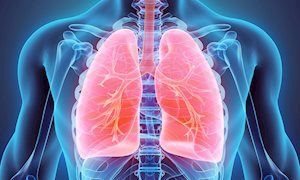
An additional external-beam radiation dose delivered directly to the tumor can benefit the prospects of men with non-metastatic prostate cancer, without causing additional side effects. The risk of relapse within five years for these men is smaller than for men who did not receive this boost, as shown by a large-scale study initiated by UMC Utrecht in collaboration with the Netherlands Cancer Institute, UZ Leuven and Radboudumc.
Radiation therapy is one of the treatment options for men with non-metastatic prostate cancer. Physicians deliver the external beam radiation to the entire prostate, as cancer cells often occur in several areas throughout the prostate. Only the main tumor is visible on a scan. If the cancer returns, it often recurs right where that visible tumor was located. Delivering an additional dose to this area appears very effective, as shown by the FLAME trial: a large-scale study involving 571 patients at UMC Utrecht, Netherlands Cancer Institute, UZ Leuven, and Radboudumc. Results will be published today in the Journal of Clinical Oncology.
Less recurrence
As part of the study, patients received 35 radiotherapy sessions with or without additional radiation boost delivered to the visible tumor. The men who had received the additional boost showed less recurrence over the first five years after treatment than the others. 92% of men who received the boost had low levels of PSA – an important indicator of prostate cancer – compared to 85% of men who had not. All participants were men diagnosed with intermediate- or high-risk tumors.
No additional side effects
“The radiation boost halved the percentage of men presenting with raised PSA levels over the first 5 years after treatment: from 15 to 8 percent,” radiation oncologist and research leader Linda Kerkmeijer of UMC Utrecht and Radboudumc clarifies. “The radiation boost did not lead to additional side effects, which is an important outcome.” The treatment is currently available at UMC Utrecht, the Netherlands Cancer Institute, UZ Leuven and Radboudumc.
Prevent trouble
“Our results can benefit a substantial number of men,” radiation oncologist Floris Pos of the Netherlands Cancer Institute explains. “Every year in the Netherlands, we give radiation therapy to hundreds of men who may qualify for this treatment. This could prevent a lot of trouble: for our patients, cancer recurrence often means uncertainty, diagnostic examinations, and intense treatments like surgery or hormone therapy.”
5 radiation sessions
At the start of the FLAME trial, standard treatment for these patients was 35 radiation sessions. Over the past years, this number has been scaled down to 20, and 5 for men with less aggressive tumor types. “Meanwhile, we have started a follow-up study that combines these new radiation boosts with 5 radiation sessions” (see information below), says radiation oncologist Karin Hausterman of UZ Leuven. “It appears that 5 radiation sessions may become the new standard for this group of patients as well.”
Information about prostate cancer
Prostate cancer is the most common type of cancer in men in the Netherlands. More than 12,000 men are diagnosed with prostate cancer every year. In about half of these people, the cancer cells are still contained in the prostate (IKNL). These men have multiple treatment options, such as radiation therapy, hormone therapy, or surgical removal of the prostate.
About the boost treatment (FLAME trial)
- Treatment: 35 radiation sessions with additional boost to visible tumor
- Cancer type: non-metastatic intermediate- or high-risk prostate cancer
- Research phase: randomized phase III clinical trial
- Number of patients treated: 571
- Availability: new treatment in the Netherlands available at UMC Utrecht, Netherlands Cancer Institute, UZ Leuven and Radboudumc
Follow-up study (hypo-FLAME 2.0 trial)**
- Treatment: 5 radiation sessions with additional boost to visible tumor, 2x/week
- Cancer type: non-metastatic intermediate- or high-risk prostate cancer
- Research phase: phase II clinical trial
- Number of patients: 124
- Availability: study ongoing in UZ Leuven, Netherlands Cancer Institute, and Radboudumc
**If you would like to know whether you qualify for participation in the hypo-FLAME 2.0 trial, please contact your physician.
This study was made possible through the financial support of the Dutch Cancer Society.
Related news items

KWF grant for better selection of individuals and lung nodules in lung cancer screening
1 November 2021 The Dutch Cancer Society has awarded the consortium project ‘Multi-source data approach for Personalized Outcome Prediction in lung cancer screening’ with a grant of 1,425,000 Euro. Colin Jacobs will lead the work package on using artificial intelligence for accurate risk estimation of lung nodules. read more
Evaluation of an AI system for detection of COVID-19 on Chest X-Ray images
22 May 2020 In the journal Radiology researchers from Radboudumc, Bernhoven Hospital and Jeroen Bosch Hospital described how an artificial intelligence system (CAD4COVID-XRay) can identify characteristics of COVID-19 on chest x-rays with performance comparable to six independent radiologists. read more
Is Google's lung cancer AI ready for implementation?
19 December 2019 In Nature Reviews Clinical Oncology, Colin Jacobs and Bram van Ginneken discussed the recent paper by Google AI in Nature Medicine on deep learning models for automatic detection of lung cancer from computed tomography. read more
Awarded KWF grants for Radboudumc researchers
18 December 2019 KWF is investing 2.7 million euros in five different studies at Radboudumc. The awards are part of the new round of funding by DCS, in which over 34 million euros will be granted to Dutch cancer research. We congratulate our researchers with this funding and wish them success with their great work. read more
Making pregnancy ultrasound available in developing countries
24 January 2019 Many pregnant women in developing countries do not receive an ultrasound examination. As a result, pregnancy risks often go unnoticed, which contributes to the high maternal mortality rates in these countries. read more
